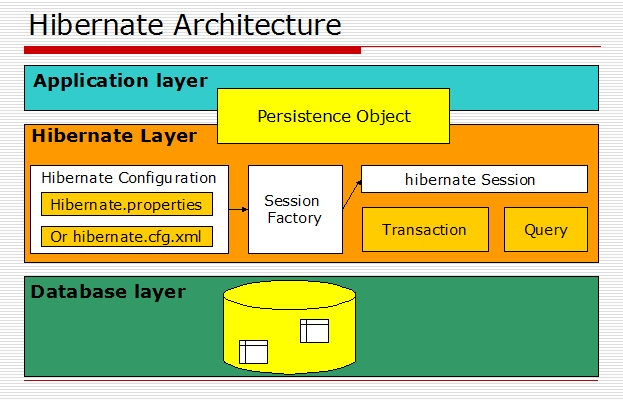Please read all the questions and select the correct option in the form below.
1. Given the code fragment: publicclass App { void calcBill() { // Line n1 new Invoice().print(); } } Which code fragment can be inserted at Line n1 to enable the class compile? A) privateclass Invoice { void print() {System.out.println("Invoice Printed");} } B) publicclass Invoice { void print() {System.out.println("Invoice Printed");} } C)class Invoice { void print() {System.out.println("Invoice Printed");} } D) protectedclass Invoice { void print() {System.out.println("Invoice Printed");} }2. Given: publicinterface MyInt { public void method1() { System.out.println("method1"); } public default void method2() { System.out.println("method2"); } public static void method3() { System.out.println("method3"); } public abstract void method4(); } Which statement is true? A) Only method4() compiles B) Only method2() and method4() compiles. C) Only method2(), method3(), and method4() compiles. D) MyInt.java compiles.3. Given the code fragment: public static void main(String[] args) { Listcourses = Arrays.asList("Java", "Oracle", "JSF", "EJB"); // Line n1 System.out.println(count); } Which code fragment can be inserted at Line n1 to enable the code to print 2? A) int count = courses.stream().filter(s -> s.startsWith("J")).count(); B) long count = courses.stream().filter(s -> s.startsWith("J")).count(); C) int count = courses.filter(s -> s.startsWith("J")).stream().count(); D) long count = courses.filter(s -> s.startsWith("J")).stream().count(); 3. Given the code fragment: public static void main(String[] args) { Listcourses = Arrays.asList("Java", "Oracle", "JSF", "EJB"); // Line n1 System.out.println(count); } Which code fragment can be inserted at Line n1 to enable the code to print 2? A) int count = courses.stream().filter(s -> s.startsWith("J")).count(); B) long count = courses.stream().filter(s -> s.startsWith("J")).count(); C) int count = courses.filter(s -> s.startsWith("J")).stream().count(); D) long count = courses.filter(s -> s.startsWith("J")).stream().count(); 4. Given the code fragment: publicclass App{ public static void main(String[] args) { String[] fruits = {"banana", "apple", "pears", "grapes"}; Arrays.sort(fruits, (a, b) -> a.compareTo(b)); for (String s : fruits) { System.out.print(" "+s); } } } What is the result? A) apple banana grapes pears B) pears grapes banana apple C) banana apple pears grapes D) Compilation fails.5. Given the code fragment: LocalDate date1 = LocalDate.of(2016, Month.JANUARY, 1); LocalDateTime date2 = LocalDateTime.of(2017, Month.JUNE, 1, 1, 1); Period p = Period.between(date1, date2); System.out.print(p.getYears() + ":" + p.getMonths() + ":" + p.getDays()); What is the result? A) 1:5:0 B) 1:6:0 C) 0:0:0 D) Compilation fails.6. Given that /report/jun.txt and report/data/jundata.txt files are accessible and given the code fragment: public static void main(String[] args) { try (Streamst1 = Files.find(Paths.get("/report"), 2, (p, a) -> p.toString().endsWith("txt")); Stream st2 = Files.walk(Paths.get("/report"), 2);) { st1.forEach(s -> System.out.println("Found: " + s)); st2.filter(s -> s.toString() .endsWith("txt")) .forEach(s -> System.out.println("Walked: " + s)); } catch (IOException ioe) { System.out.println("Exception"); } } What is the result? A) Found: \report\data\jundata.txt Found: \report\jun.txt Walked: \report\data\jundata.txt Walked: \report\jun.txt B) Found: \report\data\jundata.txt Found: \report\jun.txt Walked: \report\data\jundata.txt Walked: \report Walked: \report\jun.txt Walked: \report\data\ C) Found: \report\jun.txt Walked: \report\data\jundata.txt Walked: \report\jun.txt D) Found: \report\jun.txt Walked: \report Walked: \report\jun.txt Walked: \report\data\ Walked: \report\data\jundata.txt 7. Given the code fragment: public static void main(String[] args) { Streamnums = Stream.of(1, 2, 3, 4, 5); nums.filter(n -> n % 2 == 1); nums.forEach(p -> System.out.print(p)); } What is the result? A) 135 B) 12345 C) Compilation fails. D) An exception is thrown at runtime. 8. Given the code fragment:class MyResource1implements Closeable { public void close() { System.out.print("r1 "); } }class MyResource2implements AutoCloseable { public void close() throws IOException { System.out.print("r2 "); throw new IOException(); } } publicclass App2 { public static void main(String[] args) { try (MyResource1 r1 = new MyResource1(); MyResource2 r2 = new MyResource2();) { System.out.print("try "); } catch (Exception e) { System.out.print("catch "); for (Throwable t : e.getSuppressed()) { System.out.println(t.getClass().getName()); } } } } What is the result? A) try r2 r1 catch java.io.IOException B) try r2 r1 catch C) try r1 r2 catch D) Compilation fails.
Quote of the day

Popular Posts
-
public class StringTest { public static void main(String[] args) { String str = "a4k3b2";// output aeknbd ...
-
Prgrammer deploys the spring web MVC application to the web-server or Application Server. Deployment actions takes place on the Dis...
-
1.Collection :- If we want to represent a group of individual objects as a single entity then we should go for Collection. Co...
Blog Archive
- February 2024 (1)
- November 2022 (2)
- September 2020 (2)
- June 2020 (1)
- March 2020 (1)
- January 2020 (1)
- October 2019 (1)
- June 2019 (1)
- April 2019 (2)
- March 2019 (12)
Featured Post
Collection Framework Overview
Collection:- A collection (sometimes called a container) is simply an object that groups multiple elements into single unit. Collect...

Youtube Page
Facebook Page
Recent Posts
About

I am Shivaji Chandra and I'm a Computer Science Engineer.
I love to write poems, jokes and quotes.
click here →
-
Total Pageviews
-
Follow by Email
-
Developer View
If you are reading this, then you have interest in this blog. Keep supporting us by reading our blogs you can find technology related all updates here.
Copyright ©
JavaTechTube | Powered by ShivaTube
Distributed By Shivaji Chandra | Blogger Theme By Java Tech Tube












